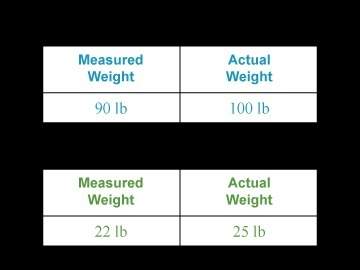
Mathematics, 19.05.2020 13:02 abolton04
Consider the following proposed proof, which claims to show that every nonnegative integer power of every nonzero real number is 1.
Let r be any nonzero real number, and let P(n) be the equation r ^n = 1.
Show that P(0) is true : P(0) is true because r^0 = 1 by definition of zeroth power.
Show that for every integer k >= 0, if P(i) is true for each integer i from 0 through k, then P(k + 1) is also true:
Let k be any integer with k >= 0 and suppose that r^ i = 1 for each integer i from 0 through k. This is the inductive hypothesis. We must show that r^ k + 1 = 1. Now
r^ k + 1 = r^ k + k - (k - 1) because k + k - (k - 1) = k + 1
r ^k * r^ k / r^ k - 1 by the laws of exponents
1*1 / 1 by inductive hypothesis
=1
Thus r^ k + 1 = 1 [as was to be shown].
[Since we have proved the basis step and the inductive step of the strong mathematical induction, we conclude that the given statement is true.]
Question:
a) Identify the error(s) in the above "proof."

Answers: 2


Another question on Mathematics

Mathematics, 21.06.2019 14:50
What is the volume of the sphere shown below with a radius of 3?
Answers: 1

Mathematics, 21.06.2019 16:50
What are the steps to solving the inequality 3b + 8 ≥ 14?
Answers: 1

Mathematics, 21.06.2019 19:20
What is the measure of ac? 5 units 13 units 26 units 39 units 3x- 2b 6x + 9
Answers: 2

Mathematics, 21.06.2019 20:30
Elizabeth claims that the fourth root of 2 can be expressed as 2^m since (2^m)^n = 2. find the values of m and n for the case where elizabeth's claim is true.
Answers: 3
You know the right answer?
Consider the following proposed proof, which claims to show that every nonnegative integer power of...
Questions


Health, 31.10.2020 04:30

Health, 31.10.2020 04:30


Geography, 31.10.2020 04:30


History, 31.10.2020 04:30





English, 31.10.2020 04:40





Chemistry, 31.10.2020 04:40

Social Studies, 31.10.2020 04:40

Mathematics, 31.10.2020 04:40


 (because k + k - (k - 1) = k + 1)
(because k + k - (k - 1) = k + 1) (By laws of exponent)
(By laws of exponent)
 (Since the power of r is a negative integer i.e. -1 it will shift to the numerator)
(Since the power of r is a negative integer i.e. -1 it will shift to the numerator) (We get this equation after canceling out the similar terms in numerator and denominator in previous step)
(We get this equation after canceling out the similar terms in numerator and denominator in previous step) (Provided r > 1 or r < -1)
(Provided r > 1 or r < -1)


